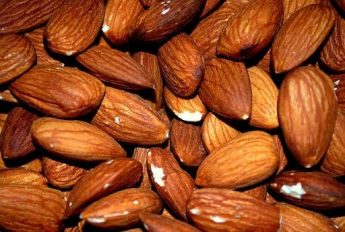Introduction
Quick Navigation
The world we live in features diverse organisms, including plants and animals. The environment is incomplete without the existence of these organisms, as they all contribute to the balance of life and the ecosystem. Most animals solely depend on the environment for survival in so many ways, including feeding, as the entire feeding process is like a never-ending cycle. Food is essential for the growth and development of both humans and animals as none of them can survive for long without eating. This cuts across all the animal families, including birds. Birds can be carnivores, herbivores, or omnivores. Carnivores feed solely on the meat and flesh of other animals; herbivores feed on plants, both terrestrial and aquatic plants, while omnivores eat both plants and animals.
See also; can birds eat raisins
Most birds are omnivores and can survive on combining both plants and flesh as part of their diet. While birds of prey are predominantly carnivores, smaller birds are omnivorous. These smaller birds mostly feed on seeds, nuts, and berries and rarely eat meat. Most wild birds tend to go on this diet all through their lives. It is important to note that birds’ diet constitutes greatly to the growth and development of these flying creatures, which is why they tend to place importance on their feeding. For omnivores, seeds and nuts are excellent sources of nutrients necessary for bird’s survival.
Check also; blue footed booby
Nuts are safe for birds to eat and provide a high range of nutrients. They are the easiest accessible part of the diet that wild birds feed on and survive on. As these birds are highly active, the calorie content of nuts is suitable for such animals. Birds can eat several types of nuts, including acorns, almonds, peanuts, pine nuts, and walnuts. Many bird species consume these nuts, most especially backyard birds and songbirds that usually frequent open lands and wild areas.
See this; black and yellow birds
Almonds
They are very popular nuts commonly found in the wild and consumed by a variety of animal species, including birds. This small nut is the fruit of a cultivated tree with the same name and is considered to be a drupe in the classes of fruits. It is usually covered with a shell while the true fruit is inside. This particular nut is among the favorites of hamsters, chipmunks, and most omnivorous wild birds. They grow abundantly in the wild and can be easily gotten making it an important feature of most wild birds’ diet. Healthwise, the almond is regarded as safe for consumption by omnivorous birds both in the wild and in captivity. They have no adverse effects and are more beneficial when consumed unsalted.
Check also; birds of Wisconsin
Almonds are also commonly used in feeders for most backyard birds as they are easily consumed that way. Nuts, in general, are a healthy meal for birds, but almonds particularly are distinctly beneficial.
Birds and almonds
In birds of prey, their main focus is smaller birds and other sources of meat. For omnivorous, which have a high population in the birding world, seeds and nuts are premium sources of nutrients. Although these birds can feed on meat, it is much easier to survive on a diet of nuts like almonds as they are readily available and can be easily obtained. Feeding on almonds offers birds the assurance of a steady food supply and longer chances of survival. Apart from being easily obtained, almonds also have several benefits which they offer birds that feed on them.
One good thing about this nut is that the body mechanism of birds wholly accepts their consumption, and these fruits grow fast and are abundant. Their quick growth and abundant population in the wild assures most bird species that they can not lack food except probably in winter or harsh weather conditions. This and few other reasons contribute to the theory that wild birds survive longer than domesticated or bird species in captivity. Although it remains fairly a speculation, there’s a chance that it can be true.
See this too; birds of Virginia
Benefits of almonds in birds
Eating almonds can be fun for birds, but they are much more beneficial than that. They may look very small be steady consumption by birds would result in a healthy life and a prolonged lifespan if other threats like diseases and predators are successfully avoided. Almonds contain in high quantities calories which is very necessary for birds knowing that birds are very active animals who consume lots of calories daily. Therefore, almonds provide energy for these creatures in large quantities required for their various activities. Apart from the calories present in this nut, protein is also contained in large amounts, as nuts are scientifically known to be very rich in protein content. Digestion and stomach functioning in birds are made easy with the consumption of almonds, as the dietary fiber in the fruit makes this possible. Almonds also provide high energy useful during migration and winter when the temperature is generally low.
The season winter is usually a trying time for most animals as a result of the fall in temperature, extreme cold, and harsh weather conditions. Foraging during such conditions by birds would be akin to a death sentence. Most birds, therefore, gather almonds during summer and store them up for consumption during winter. Because these nuts last long, especially when they have not been shelled, they then help birds survive through the winter period. This way, resident birds do not starve to death during winter.
Almonds also are very abundant in nature, and so birds can feed on them for a long time since most birds do not eat much due to their stomach sizes. These nuts germinate quite easily and grow fast, so, at every point in time, wild birds are assured of the availability of almonds, and this extends their survival rate.
Check out; birds of south Carolina
Conclusion
The foods which birds take in perform several functions in their bodies. Different species of birds also have different nutritional needs. However, the consumption of almonds by birds is a great way of meeting such needs.

